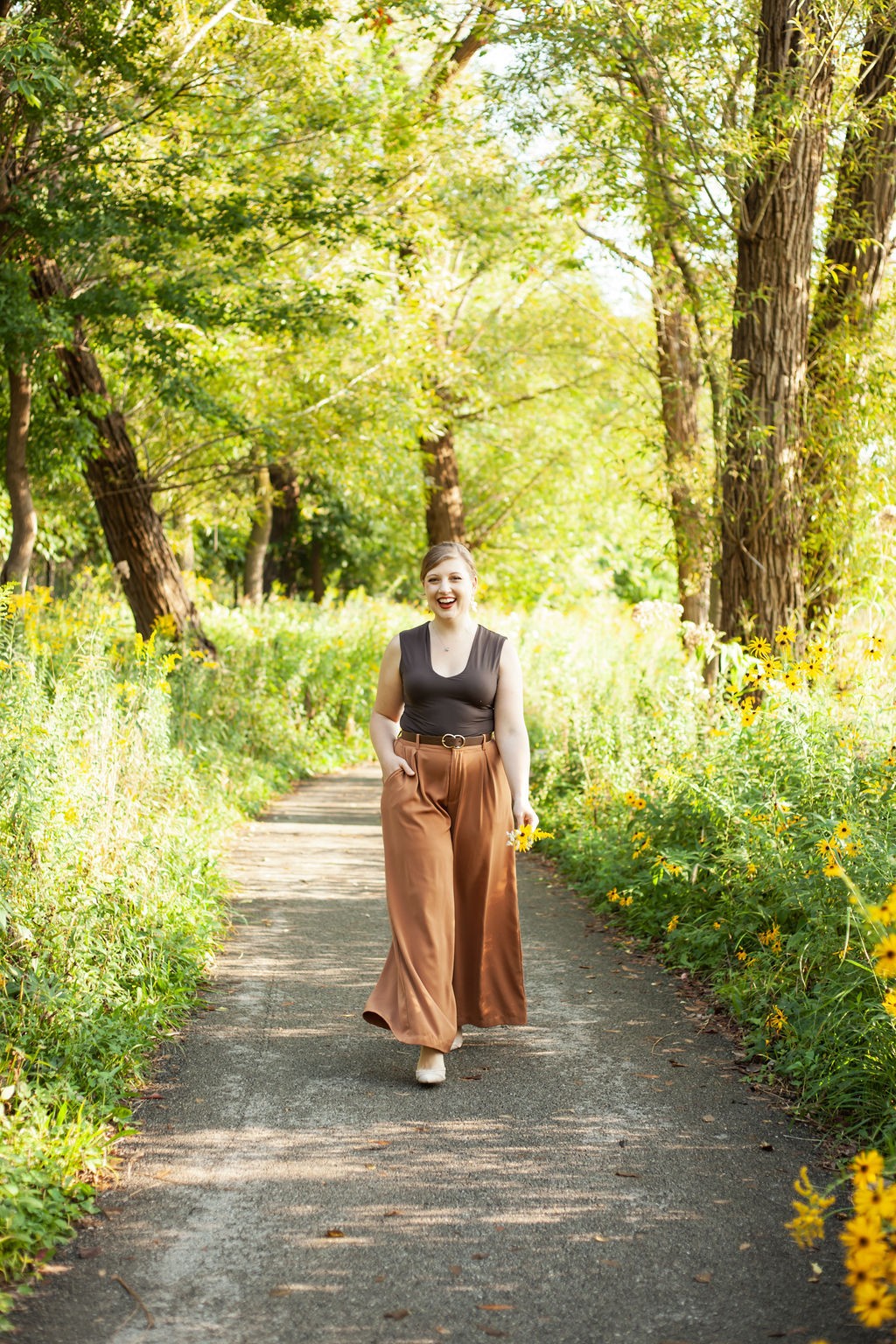We were lucky to catch up with Shelby Forsythia recently and have shared our conversation below.
Hi Shelby, appreciate you sitting with us today to share your wisdom with our readers. So, let’s start with resilience – where do you get your resilience from?
For me, resilience is something that comes with practice. It’s not something that sprang up or magically appeared as a result of a single, life-changing hardship. I think society often tells the story of someone experiencing a tragedy and then “becoming resilient,” when in fact, resilience is something that we are perpetually becoming with time and practice.
After my mom died suddenly in 2013, I wouldn’t have immediately called myself resilient. At the time, I felt I was the weakest and most broken I had ever been. And simply staying alive and functioning did not make me feel strong. I only began to call myself resilient when I kept waking up and kept functioning—when I started to see that I was growing in the midst of my grief.
Putting in the effort to reflect and look back on how far I’d come, I realized how much I had changed and evolved. I recognized the new things loss forced me to learn about myself and the powerful ways in which I’d been tasked with adapting to a world without my mom. Regularly reflecting on my non-linear, often invisible progress helped me see that I was resilient, even when I didn’t feel that way.
When future losses came my way (the breakup of an engagement, the unexpected death of my best friend), I trusted that I was still growing in the midst of everything that was hard and uncertain. Resilience felt more accessible, because I’d been in a similar place before. Continuing that practice of observing my progress, even laughably small progress, helped me maintain my connection with resilience. I still make an effort to recognize my growth now, as a sort of mental and emotional training. I see how far I’ve come and what I’ve been able to do in the wake of devastation. That’s how I cultivate resilience.
Appreciate the insights and wisdom. Before we dig deeper and ask you about the skills that matter and more, maybe you can tell our readers about yourself?
Since 2016, I’ve helped grieving people return to life after devastating loss, including death, divorce, and diagnosis. Recognizing and coping with grief is one of life’s biggest challenges, and it’s enormously easy to feel lost, stuck, overwhelmed, or exhausted in the midst of it. Using a combination of mindfulness tools and compassionate exercises, I help my coaching clients and students build lives they love from the lives loss forced them to live.
In 2020, I was invited by Penguin Random House to publish a non-religious daily devotional for loss called Your Grief, Your Way. It came out just six months after the beginning of the COVID-19 pandemic and has served as a gentle, comforting daily practice for grieving people all over the world. It’s available in English and Portuguese.
My cornerstone online course, Life After Loss Academy, is a powerful course and community for finding your way through loss and connecting with others who are also navigating their own experiences with grief. In addition to over 60 self-paced video lessons, I offer live coaching in a private group each week where I answer personal questions from grieving students.
You can find out more about my courses, books, podcasts, and 1:1 coaching at shelbyforsythia.com
If you had to pick three qualities that are most important to develop, which three would you say matter most?
1. Curiosity. I had a lot of questions after my mom died, many of them negative, such as, “What if I lose someone else?” “What if I am broken forever by this?” “What if pain is all there is?” Considering how I might be curious in positive ways helped me remember that the negative side of my grief wasn’t the only side. For people who are early in grief, consider asking, “What if [my person] could advise me? What would they say?” or “What if this loss is an opportunity to know myself in a new, deeper way?” The voice of “What if” can be a force for good, too.
2. Research. In times of great loneliness I sought out the wisdom of other people who’d grieved to show myself that I wasn’t the only one dealing with something so devastating. I looked at people’s social media profiles, I checked out books from the library, I watched movies—both fictional and documentary—that told stories of life after loss, I listened to podcasts. I leaned heavily on the knowledge that others had made their way through darkness before. That gave me hope that I could too, even if I couldn’t see it yet. For grievers new to life after loss, think about who in your life has a loss story similar to yours? An ancestor? A celebrity? An old high school friend you still follow on Instagram? Sources of guidance and inspiration in grief are all around you.
3. Writing. I got a lot of my feelings out by writing. It helped me express all of the thoughts that felt so jumbled up in my head and notice where patterns were occurring in my grief. For example, I recognized that my darker, more hopeless thoughts happened at night when I was exhausted from the day and feeling alone in my studio apartment. I began going to bed as soon as these thoughts appeared. Not only did I get more rest at a time I really needed it, I also woke up feeling more capable of higher-level emotional practices like perspective, gratitude, and reflection. For grieving people new to writing, try list-making. You don’t have to dive deep into your heart and soul in order to journal. My book, Your Grief, Your Way, has more than seven prompts for making lists after loss, such as the “Future Worries List” and the “52 Memories List.”
Tell us what your ideal client would be like?
I find my ideal client is someone who feels stuck in grief or overwhelmed by pain, but is unsure about HOW to move forward. People are telling them, “It’s time to process your grief! You need to start to move forward.” And they may agree with those sentiments, but they’re unsure about where to begin. For those people, the five-step G.R.I.E.F. Method I teach inside of Life After Loss Academy is a perfect fit. I begin by helping them feel calm and grounded in the world. Then, we work together to release the pain and difficult emotions that loss brings—such as the life you thought you’d have and the person you can no longer be. After that, we integrate grief into their life and find ways they can honor their person who died that are meaningful to them. Then, we look at their larger relationships and determine how they can set boundaries and ask for support from friends, family and coworkers. Finally, we work together to construct a vision of their unique good life with grief, essentially framing grief as a long-term relationship and finding ways to create peace, purpose, joy, and fullfilment inclusive of their grief experience.
Contact Info:
- Website: https://www.shelbyforsythia.com/
- Instagram: https://www.instagram.com/shelbyforsythia/
- Facebook: https://www.facebook.com/shelbyforsythia/
- Linkedin: https://www.linkedin.com/in/shelbyforsyth/
- Youtube: https://www.youtube.com/channel/UCo34-FLEEdl7JSdzGisfr3w
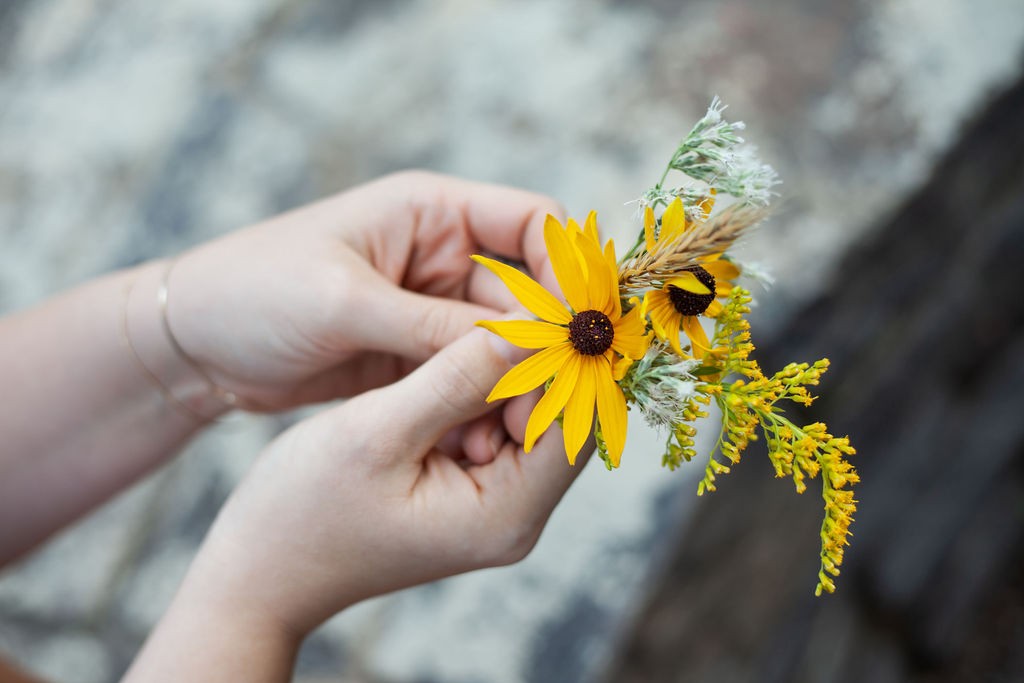

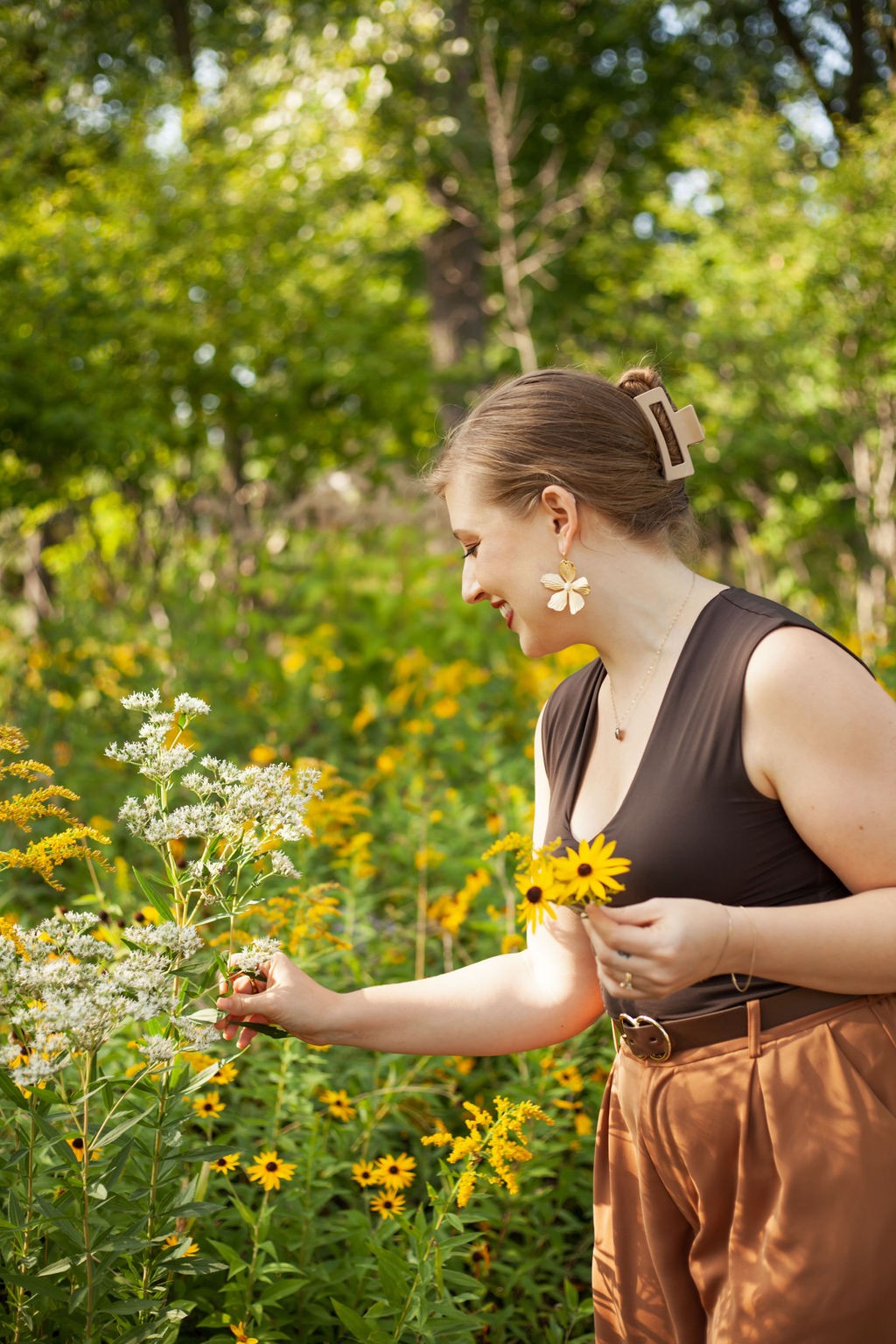
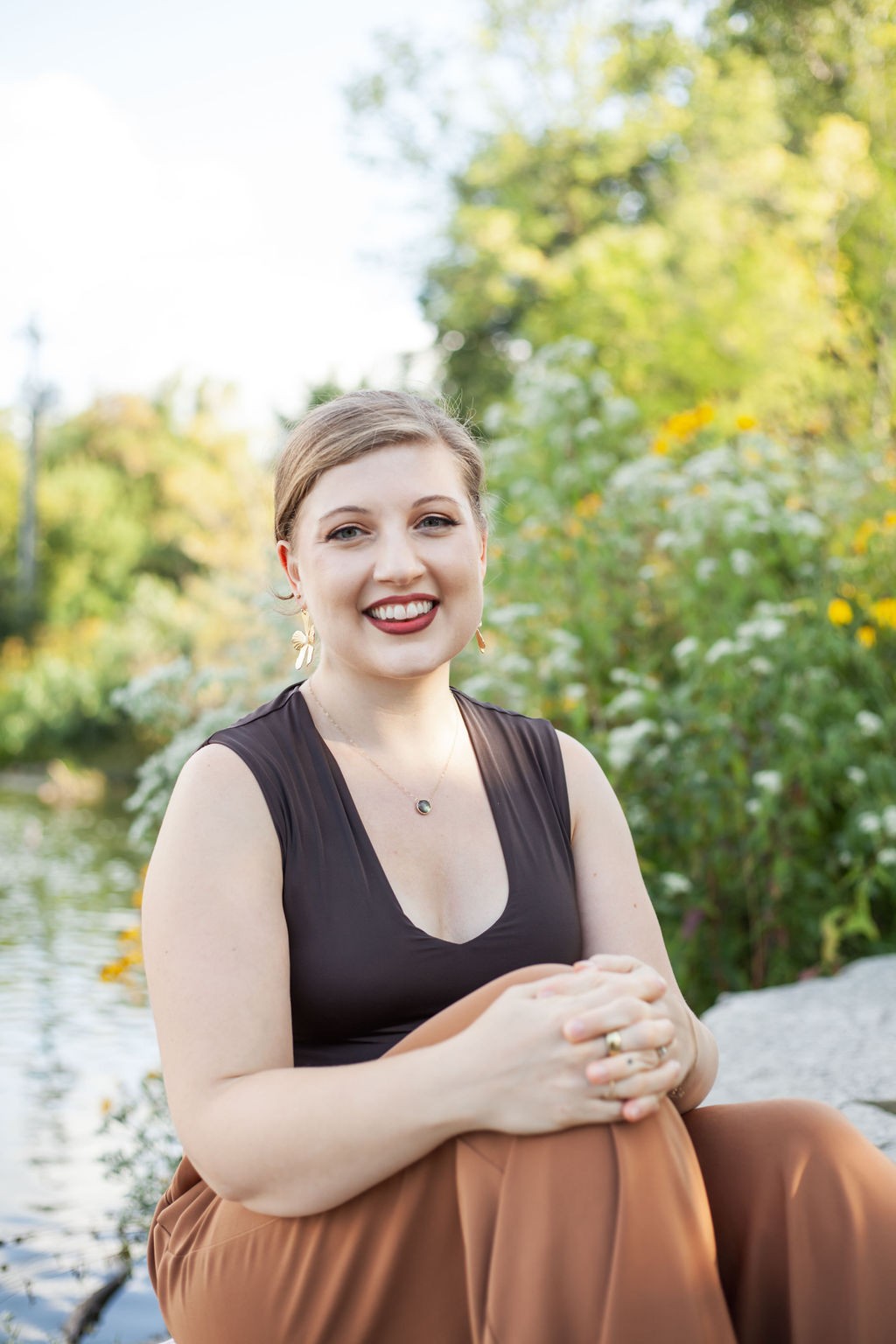
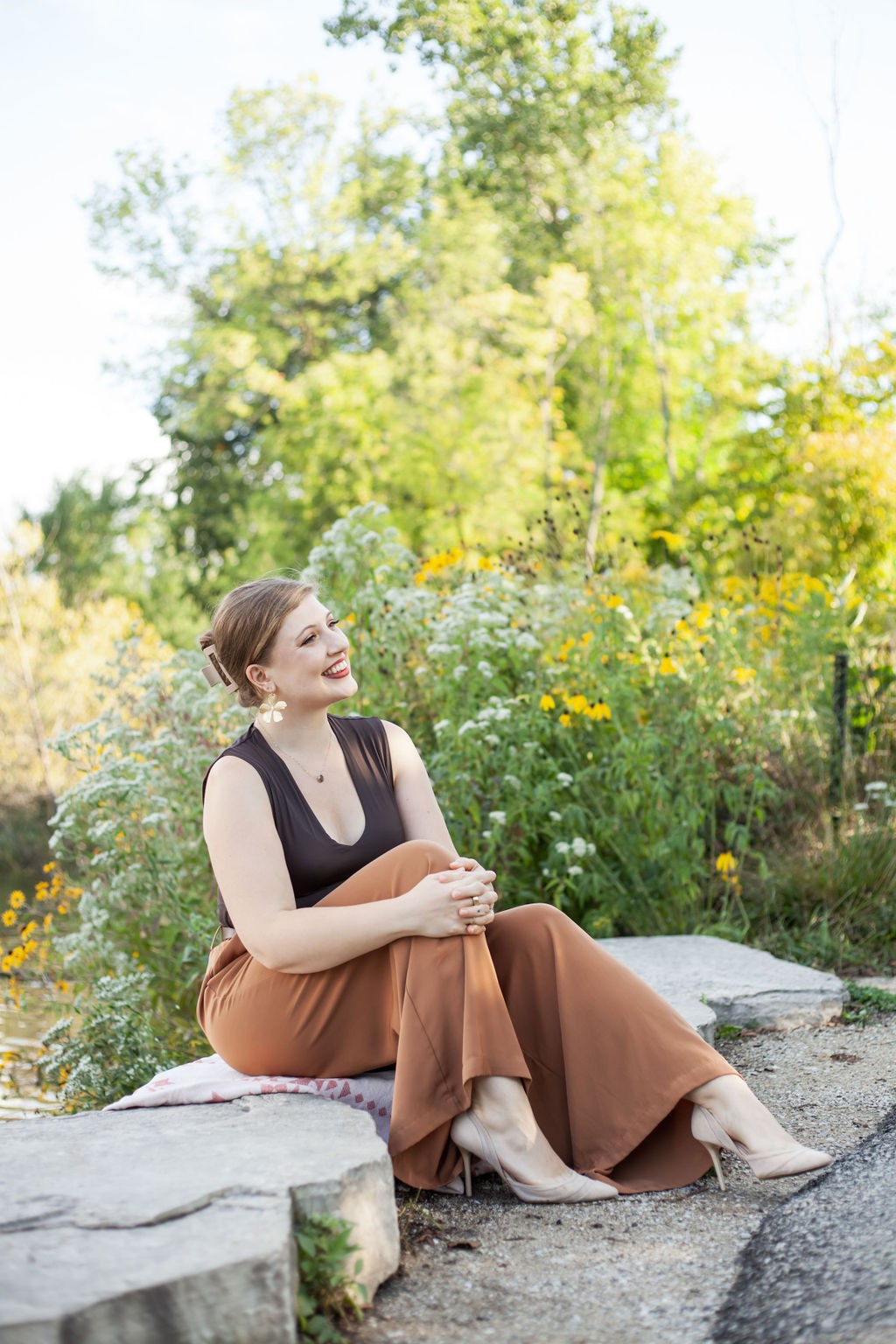

Image Credits
Jolene Sage Photography

